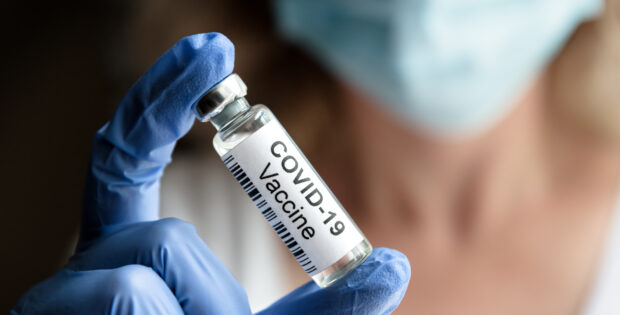
The COVID-19 pandemic has had a dramatic impact on our lives and has, understandably, led to a lot of anxiety and concern for everyone.
Fortunately, some vaccinations have now been developed and are available for certain population groups.
However, patients with inflammatory rheumatic diseases (RMDs), including rheumatoid arthritis, may have a number of questions about these vaccines and whether they should receive them when they are made available to them.
Guides and tools to help people with RMDs understand these vaccinations are available from this government website
We have summarised some of the information found from the EULAR website too.
Are the vaccines safe for patients with inflammatory rheumatic diseases?
Short answer: Yes
The key section from the EULAR points states the following:
“”Q – Do I need to be vaccinated?
A — Yes, we encourage everybody to be vaccinated against COVID-19. It is widely thought that only by vaccinating we may we contain the pandemic
Are the vaccines safe for patients taking methotrexate?
Short answer: Yes
There are a few extra bits of information that are worth knowing for people taking particular disease modifying drugs (DMARDS).
Patients taking methotrexate (and possibly a few other DMARDS) may not mount as strong an antibody response to these vaccinations as they would do were they not to be taking methotrexate. However, that does not mean they should not receive the vaccination. Some rheumatologists have discussed perhaps holding off methotrexate for a week or two after the second vaccination dose but currently I do not recommend this to my patients and there are no guidelines that recommend this. This is an individual decision and I would advise discussing it with your rheumatologist should you have any concerns.
Are the vaccines safe for patients taking rituximab?
Short answer: Yes, but it may be advisable to receive the vaccine 4-6 months after your last rituximab dose so that the vaccine works better
Patients taking rituximab should be aware that they may not mount a strong antibody response if they receive the vaccinations shortly after their rituximab dose(s). Many rheumatologists would advise waiting 4-6 months after the last rituximab dose prior to receiving the vaccination or perhaps delaying rituximab slightly in order to receive the vaccination but, once again, I would advise discussing this with your rheumatologist.
Am I more at risk of catching Covid-19 if I have an inflammatory rheumatic disease?
Short answer: No
Another statement in the EULAR viewpoints that may interest you is that “there is no demonstration that the risk of getting the disease is higher in patients with RMDs”. This statement is based on a number of registries showing that patients with most RMDs who are well controlled and not taking high doses of steroid do not appear to be more prone to being infected with COVID-19, or indeed having worse outcomes should they catch COVID-19. Whether this is due to patients with these RMDs being more cautious or not remains to be seen but, so far, the data is reassuring.
How do the vaccinations work?
The Pfizer vaccination is an ‘mRNA’ vaccination that uses a bit of the viral genetic code to cause an immune response. The Oxford AstraZeneca vaccination is based upon an inactivated (not live) vaccine to cause an immune response. Both vaccines cause the body to produce antibodies to the virus and therefore allow the body to fight and clear the COVID-19 virus should someone catch it.
We hope that this information is useful to you and that you stay safe.
Dr Martin A Lee MB.BCh.BSc(Hons).FRCP(Rheum).PgDipClinEd.FHEA.MAcadMEd
Consultant Rheumatologist & Adjunct Clinical Associate Professor
Government update: UK regulator issues new advice on AstraZeneca vaccine
The Medicines and Healthcare Products Regulatory Agency (MHRA) has, today (7 April), published updated information for people and healthcare professionals on the possible risk of extremely rare and unlikely to occur specific types of blood clots following vaccination with the AstraZeneca COVID-19 vaccine.
Following a rigorous scientific review of all the available data, the MHRA said that the risk of these blood clots, based on reports up to and including 31 March, is slightly higher than the risk calculated from the reports published up to and including 24 March. However, likelihood of these blood clots occurring is still extremely rare.
The data suggest there is a slightly higher incidence reported in the younger adult age groups and the MHRA advises that this evolving evidence should be taken into account when considering the use of the vaccine.
The Joint Committee on Vaccination and Immunisation (JCVI) advise that the benefits of prompt vaccination with the AstraZeneca vaccine far outweigh the risk of adverse events for individuals 30 years of age and over and those who have underlying health conditions which put them at higher risk of severe COVID-19. The JCVI has also advised that it is preferable for adults aged under 30, without underlying health conditions that put them at higher risk of severe COVID-19, to be offered an alternative COVID-19 vaccine, if available.
The MHRA’s advice remains that the benefits of the vaccines against COVID-19 continue to outweigh any risks and that the public should continue to get their vaccine when invited to do so.
JCVI statement: https://www.gov.uk/government/publications/use-of-the-astrazeneca-covid-19-vaccine-jcvi-statement
